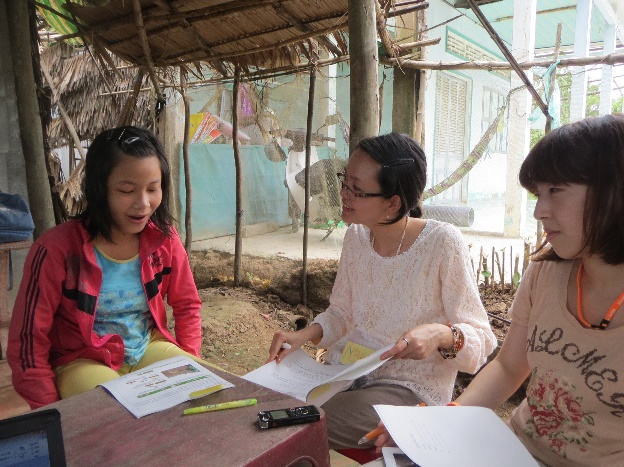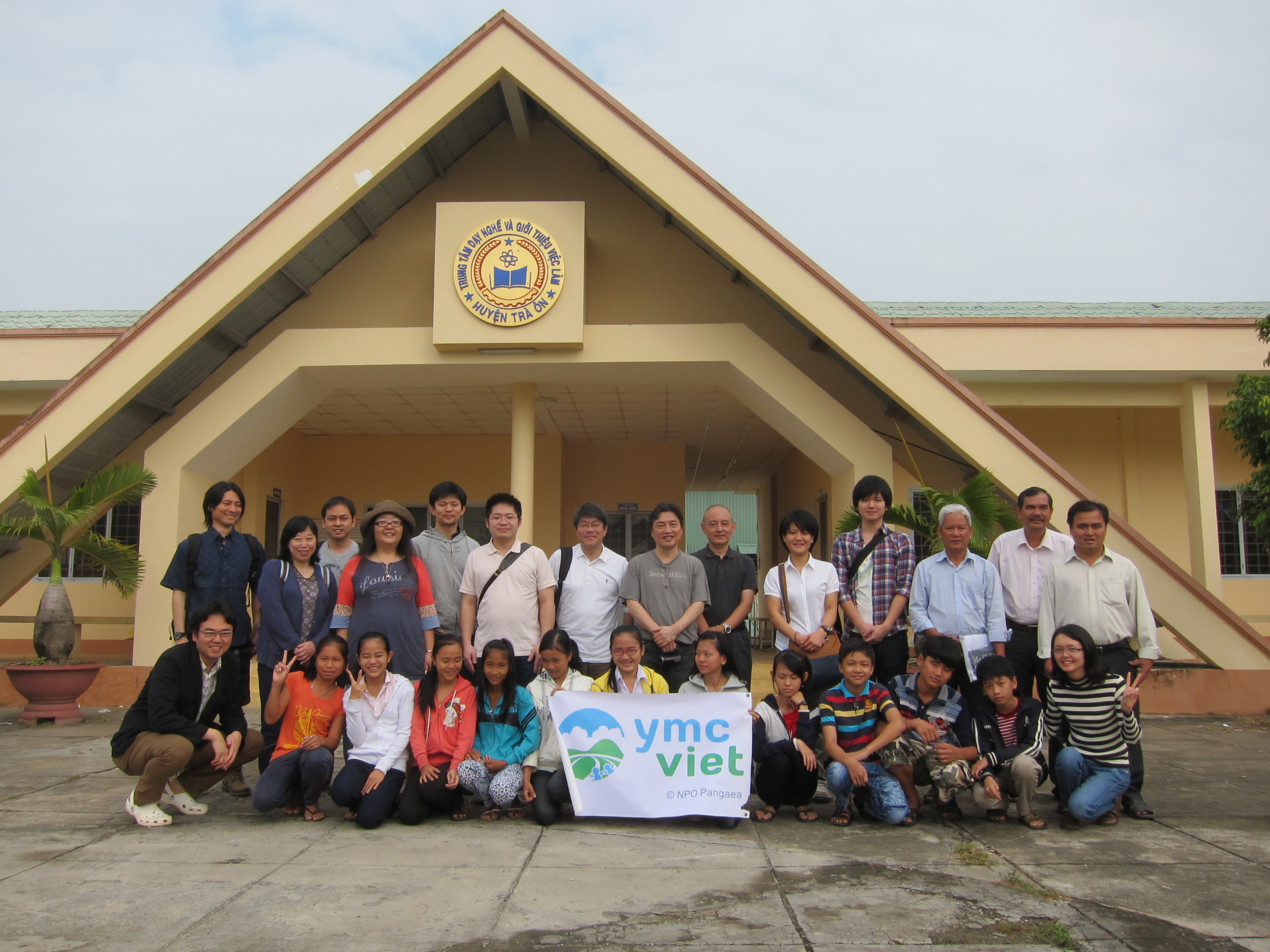Contents
[Language Grid Services and Resources]
![]()
[LREC2014 Workshop Report]
![]()
[Awards]
![]()
[Language Grid Project Introduction: Experiment Report on YMC Viet project in 2013]
![]()
[Language Grid User Introduction (the 32nd): Inaba Laboratory, Tsuda College]
![]()
[Periodic Maintenance: April 14th 2015, May 12th 2015 and June 9th 2015]
![]()
Language Grid Services and Resources
◆2 new Language Services were added.(Service Names, Provider, Supported Languages)【Back Translation with Temporal Dictionary(Composite service)】
- Tagged Back Translation Combined With Bilingual Dictionary With Longest Match Search Service
Language Grid Kyoto Operation Center, All Languages
【Translation with Temporal Dictionary】
- Tagged Back Translation Combined With Bilingual Dictionary With Longest Match Search Service
Language Grid Kyoto Operation Center, All Languages
LREC2014 Workshop Report
The Workshop on Language Technology Service Platforms: Synergies, Standards, Sharing (LTSP) was held in Reykjavik, Iceland, on May 31st in 2014. It was held in collaboration with LREC 2014. In this workshop, there were 12 presentations related to language service platforms, such as interoperability of language services, service licensing, and QoS evaluation of language services. These presentations were given by leading European and American project teams for language service platforms, such as META-NET/META-SHARE, LAPPS Grid, CLARIN, MLi. These presentations also discussed the interoperability of their language service platforms and international collaboration among their projects.
The Language Grid project from Kyoto University, Japan, was also represented at this workshop, and proposed a language service ontology for interoperability of LAPPS grid language services and a sharing mechanism of META-SHARE metadata. As a result, MLi also requested cooperation from Language Grid project to construct a multi-language service platform. In the future, the Language Grid project will collaborate with MLi through the technology transfer of service grid server software.
Awards
◆The Achievement Award in 2012, IEICEThe Research and Development of the Language Grid received the “Achievement Award” in 2012 from the Institute of Electronics, Information and Communication Engineers (IEICE).
-
Research and Development of a Multi-lingual Service Infrastructure on the Internet - The Language Grid
Recipients: Toru Ishida , Yohei Murakami , Donghui Lin (Kyoto University))
The research of participatory simulation for multilingual chat with the Language Grid, conducted by Mr. Taishi Nose and Prof. Reiko Hishiyama of Waseda University, received the “Best Paper Award” in 2013 International Conference on Future Generation Communication Technologies (FGCT2013). Congratulations to Mr. Taishi Nose and Prof. Reiko Hishiyama of Waseda University!
-
Paper Information:
Taishi Nose, Reiko Hishiyama: Analysis of Self-tagging during Conversational Chat in Multilingual Gaming Simulation, International Conference on Future Generation Communication Technologies (FGCT2013), December 12-14, 2013.
Language Grid Project Introduction: Experiment Report on YMC Viet project in 2013
The third experiment of the YMC Viet project was conducted from September 2013 to January 2014. In this project, Japanese agricultural experts support Vietnamese farmers by transmitting agricultural knowledge to Vietnamese youth (the farmers’ children) via communication system that invokes Language Grid.
We conducted third experiment with 30 newly joined farming families from the Thien My commune, Tra On district, where the first and second experiments were conducted, and from Dong Thanh commune, Binh Minh district, Vinh Long province which joined as new location. The Japanese expert team also grew to 13 members in total. The members are from Japan International Cooperation Agency (JICA), NARO Kyushu Okinawa Agricultural Research Center (NARO/KARC), and NARO Institute of Crop Science (NICS).
The Kyoto University team visited the field and conducted an interview survey of the Vietnamese youths and farmers when the experiment finished in order to evaluate the multi-language communication facilitated by the Language Grid. This survey revealed that the communication quality got better with each experiment in YMC Viet project. Since this project will be finished by September 2014, the final report of this project will be expected anticipated soon.


In this context, the 3rd Vietnam-Japan Workshop on Youth Mediated Communication was held in Hanoi on January 7. The Vietnamese Ministry of Agriculture and Rural Development (MARD) organized the event. The purpose of this workshop was to share and discuss the current status, issues, and future directions of the YMC-Viet project, which uses the Language Grid to provide agricultural support for Vietnamese farmers through their children.
The workshop attracted over 30 participants from MARD, the National Agricultural Extension Centre (NAEC) of Vietnam, the government of Vinh Long Province and other provinces, telecommunication companies of Vietnam, and so on. Participants from the involved organizations in Japan (JST RISTEX, NPO Pangaea, Kyoto University, the University of Tokyo, Mie University, and Waseda University) presented the research and activities of the YMC-Viet project from the perspectives of agricultural support and multi-language knowledge communication design.

Before this workshop, a YMC-Viet project site visit was conducted in Dong Thanh Commune, Binh Minh District in Vinh Ling Province on January 5 (Sun). Participants observed the activities of use of the YMC system by Vietnamese children, visited several farmers’ houses and rice paddies, and exchanged opinions about the YMC-Viet project with government officials and local facilitators of Vinh Long Province.

Language Grid User Introduction (the 32nd): Inaba Laboratory, Tsuda College

The Department of Computer Science at Tsuda College holds a "Two year project" which is a required course for sophomore students. In this course the faculty teaches three topics related to information science for half a year. We have given 5 classes per an year as a topic of this course from 2011, where students develop language service website by using the Language Grid. Each student designs and develops an online translation service which they want to use during the course. It is easy even for novice PHP students because of Multilingual Studio. Students also enjoy to learn by developing unique websites, e.g., a translation website specialized in travel in Asia, or a website which translates several kind of greetings in each language.
We also hope that students experience how it is important for developers to provide information services by putting themselves in users' shoes through this project, refering to the participatory design which has been regarded as important in the Language Grid project. (Rieko Inaba, Tsuda College)
Periodic Maintenance
Periodic maintenance will be carried out as below. If you wish to use the Language Grid during this period, please contact us in advance at operation [at] langrid.org.
-
‐April 14th, Tuesday/ from 16:00 to 20:00 (JST)
‐May 12th, Tuesday/ from 16:00 to 20:00 (JST)
‐June 9th, Tuesday/ from 16:00 to 20:00 (JST)
Periodic maintenance will be carried out on the second Tuesday of every month from 16:00 to 20:00 (JST).
Please refer to the Language Grid portal sites at: http://langrid.org/en/.
